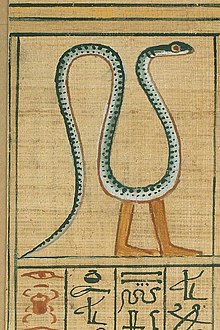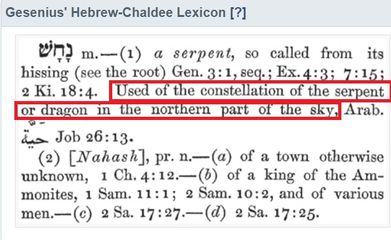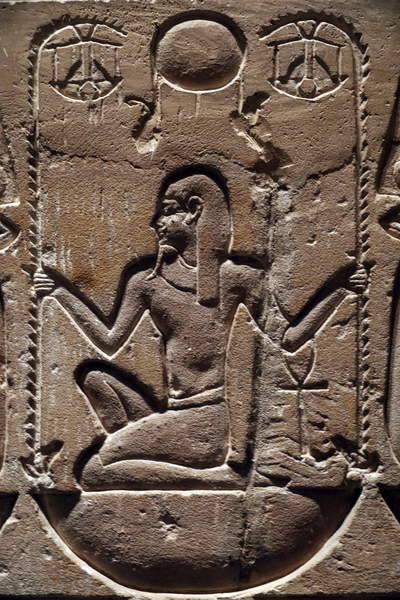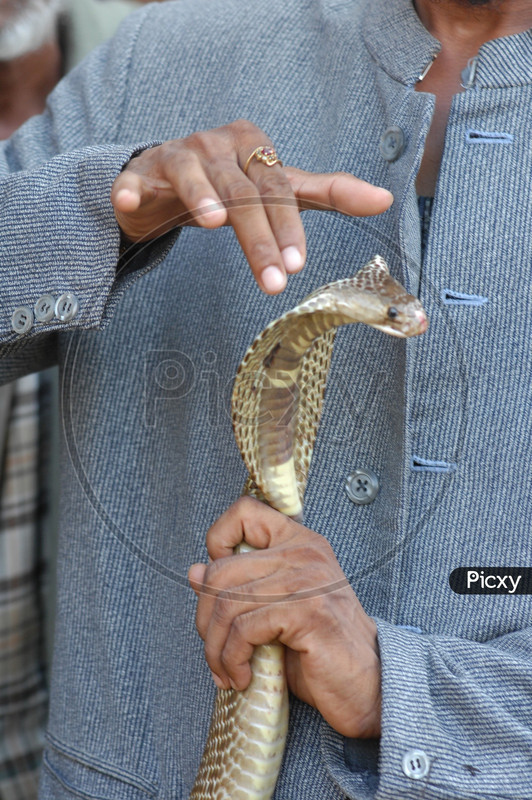
Nehebkau is the “original snake” of Egyptian mythology, and was believed to be both an ancient and eternal god. Although he is occasionally represented as a son of Serket, Renenutet or Geb, he is sometimes believed to have simply "emerged from the earth". He was believed to have lived in the Great Temple of Heliopolis, which was also the centre of worship for Re and Atum.
Nehebkau is a considerably powerful deity, which contemporary Egyptologist and author Richard Wilkinson credits to his demonic origins and snake-like qualities. After he swallows seven cobras in a myth, Nehebkau cannot be harmed by any magic, fire or water. In an early myth, he demonstrates an ability to breathe fire. Nehebkau first appears in the Pyramid Texts, and he is described as an evil, long and winding serpent who devoured human souls in the afterlife. In this context, he is believed to be an enemy of the sun god, and Re is said to have built his sun boats to be able to be pushed by the wind in order to escape Nehebkau's many coils.
Nehebkau was later honoured among other dangerous gods as one of the forty-two judges in the Court of Maat, judging the innocence of deceased souls. Additionally, orientalist Professor Wilhelm Max Muller describes Nehebkau to have personally guarded the gates of the underworld.
As a snake god, Nehebkau was also considered a dangerous, furious and fearsome demon.
In the Coffin Texts, however, the ancient god Atum places his fingernail against a nerve in Nehebkau's spine, calming his chaotic and fearsome nature. Throughout and following the Coffin Texts, Nehebkau is considered a benevolent and helpful deity who may be befriended by gods and men and enlisted into service. After this transformation, he appears as a servant and partner to the sun god Re, and is said to provide food and assistance to the deceased King in the afterlife. In this position, he became increasingly powerful and important, eventually assuming Re's role as a King of The Sky. It is in this peaceful form that he mostly appears in Egyptian mythologies, and he was often evoked as a protective god in religious rituals, amulets and spells.





The 7 words parallel the 7 words in the beginning verse of Torah, and the 12 words parallel the 12 closing verse of Torah, which have been well established by the rabbis.
The original 5 books of Torah therefore represent the revealed Torah, and the new 7 books of Torah would represent the concealed Torah that is yet to be revealed.
Written Torah is written down in order for the eyes to see, this is represented by letter Ayin, meaning “eye”.
Oral Torah is the teaching of Torah by mouth, this is represented by letter Peh, meaning “mouth”.
The fact that Ayin precedes Peh in the Alphabet comes to teach us that Written Torah is primary and Oral Torah is secondary.
The union of Written Torah and Oral Torah therefore is represented by the union of letter Ayin and letter Peh, which union is in 150.
The secret of the five (5) breads and seven (7) breads are the same, they are revealed as the “leaven of Pharisees and Sadducees” (Mat 16:11).
Pharisees and Sadducees represent the two opposite extremes on the subject of Oral Torah.
Pharisees accept all Oral Traditions by faith, this is one extreme of Torah study.
Sadducees reject all Oral Traditions and only accept the plain and simple meaning of the Torah, this is the other extreme of Torah study.
The Torah study as taught by Yeshua the Mashiach is to reconcile the two dichotomies, by studying both Oral Traditions as well as the plain and simple meaning of the Torah, such that the truth can be clarified by the works of the Holy Spirit...
Behaalotcha the Secret of the Inverted Nuns
dichotomy: a division or contrast between two things that are or are represented as being opposed or entirely different. For example, exists vs. non-existant. Light vs. Darkness. Good vs. Evil. etc.
The Pharisees and the Sadducees were Jewish schools of thought.
"For I tell you that unless your righteousness surpasses that of the Pharisees and the teachers of the law, you will certainly not enter the kingdom of heaven." Matthew 5:20

No comments:
Post a Comment
Note: Only a member of this blog may post a comment.